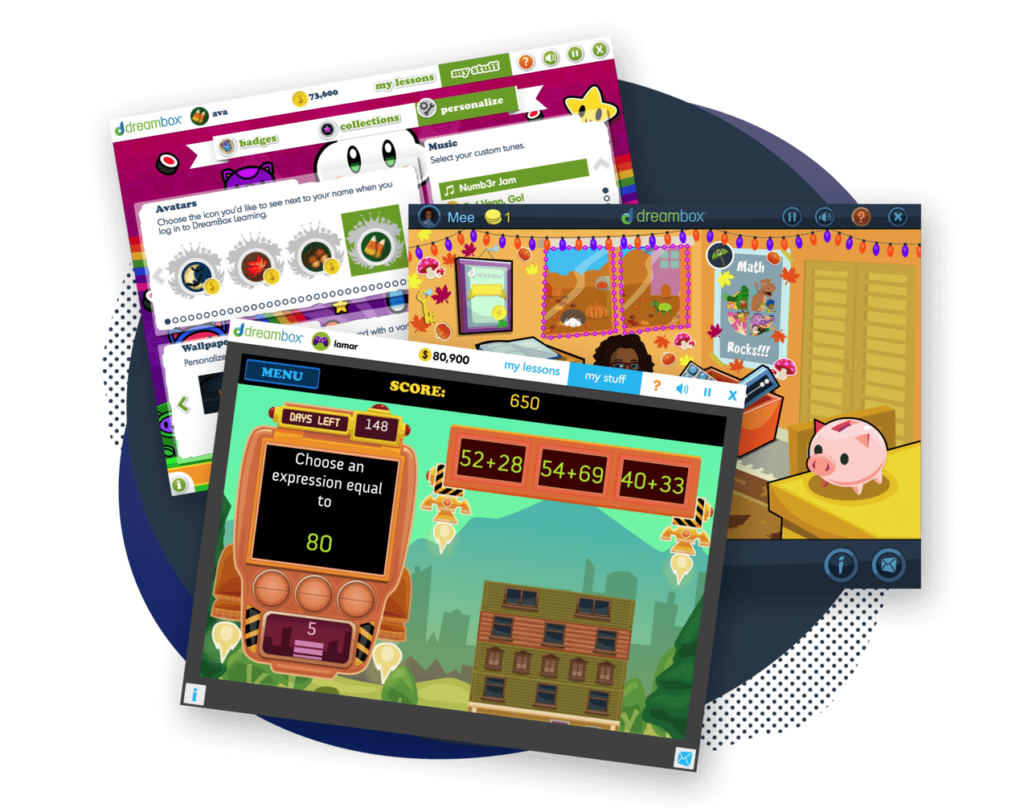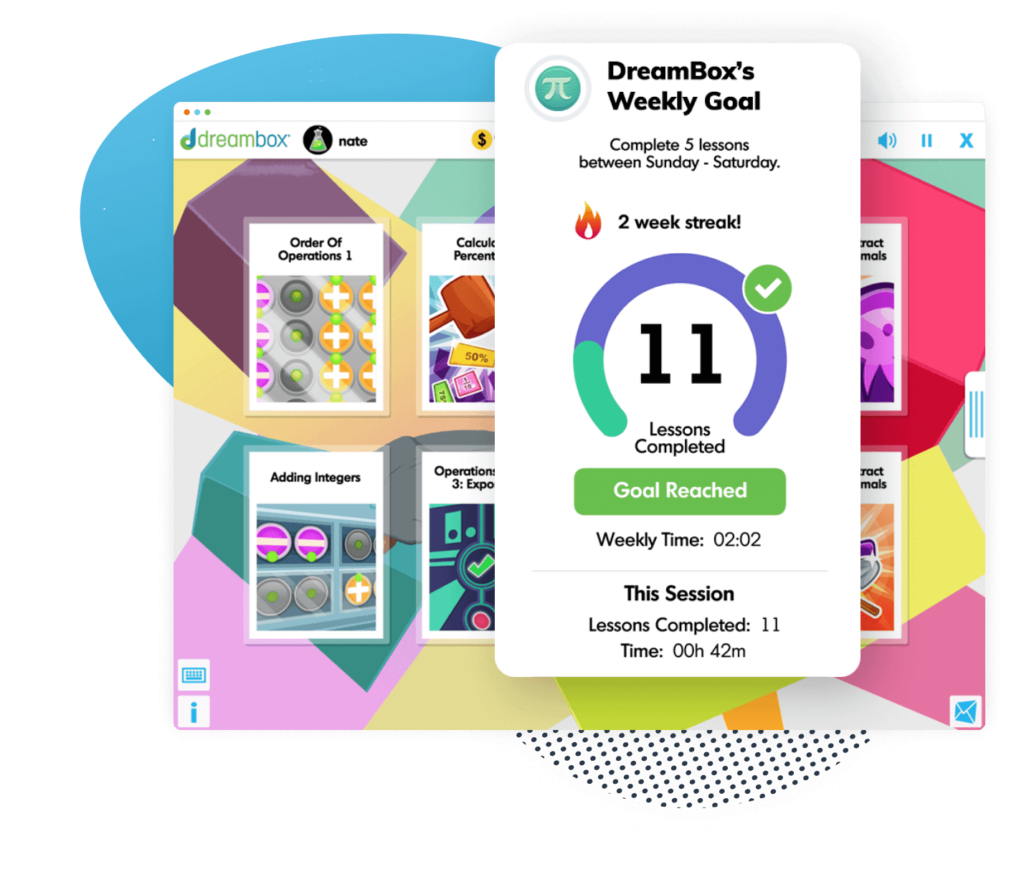Why Is Math So Important?
Learn more about how math can be a “universal language” of learning!

Author
Jill Padfield
Published:
Nov 2024
Key takeaways
- You use math everyday – Whether they’re working on homework or looking to buy a new video game, your child uses math skills every day.
- Math contributes to other fundamental skills – Problem solving, logic, and communication are all skills that are underscored by a solid mathematical foundation.
- There are many ways to learn – If your child finds the learning process difficult, there are plenty of alternative methods to try.
Why is math so important in life?
Math is so much more than a school skill. It’s a universal language that brings us together, establishes basic competencies, and impacts us every day—making it one of the most important to learn in a child’s educational career.
Let’s explore why math matters—and the many different applications it can have in the world around us.
10 reasons why a solid math education is vital to success
1. Math teaches children how to solve problems creatively
There is always more than one way to arrive at the solution to a math problem. While this can be helpful to remember as your child practices their math, it also points to a broader understanding of creativity, problem-solving, and other relevant skills that are crucial for success in life.
Table of contents
Practice your math skills with DreamBox Math!
Turn math into playtime with DreamBox Math
DREAMBOX MATH
Get started for FREE today!

2. Math impacts a child’s chance at financial success
Budgeting, bill paying, and other financial literacy skills are critical to master before your child enters adulthood. Learning the value of numbers early on can help them to understand best practices in finance and personal management — while giving them the foundation they need to thrive in more advanced finance applications (like salaries, stocks, and investment opportunities).
3. Math builds critical thinking skills in your child
Critical thinking is an essential skill for adulthood. However, it must be taught and learned — children aren’t born with it. Parents can help to lessen the learning curve and foster lifelong critical thinking abilities by pouring in to a child’s math skills early on.
4. Math skills build careers
Whether your child wants to be an accountant or an actor when they grow up, math can help them get there. Professionals use math daily in their jobs. Familiarizing your child with math concepts early on can give them the confidence they need to pursue additional learning opportunities on their own, while giving them the confidence they need to pursue a career of their dreams in the future.
5. Math supports art appreciation
While many believe that the two fields are opposed, this couldn’t be further from the truth. Math and art are intertwined at a foundational level, demonstrated in concepts like scale, symmetry, and shapes. Giving your child foundational math skills can help foster art appreciation and can shape your child’s skills in both fields.
6. Math can impact the formation of morality
Mathematical concepts underlie key components to a society’s functional understanding of right and wrong. Some of these skills include data analysis, research skills, synthesis, and pattern recognition — all of which contribute to morality and the formation of one’s own beliefs.
By offering your child a thorough understanding of the math concepts behind these broader topics, you give them the option to stand firm in their (well-informed) convictions later on.
7. Math skills can build a child’s resilience
Resiliency is often defined as how we react in the face of difficulty. Math concepts, while useful, can be hard skills to master. Taking the time to immerse your child in the learning process can help to build their understanding of resiliency, which can lead to benefits both in and out of their educational career.
8. Math helps build a child’s understanding of the world
Our children learn best by what they are exposed to. Letting your child explore the world of math early on can help them to understand the world around them at a deeper level, which can boost maturity and interest in future learning.

The math program that drives results
Get started today!
DreamBox adapts to your child’s level and learning needs, ensuring they are appropriately challenged and get confidence-building wins.
9. Math can encourage confidence
We’ll be honest. Math can be pretty hard, especially for kids who are starting to learn it! However, the mastery of these “hard” topics over time can encourage a positive feedback loop of confidence — which can build on itself into a child’s adulthood.
10. Math is fun
Many children may find that math is just plain fun! Encouraging them to learn and pursue what they feel is “fun” or what they think comes “naturally” to them is a great way to foster an attitude and excitement around lifelong learning.
Ways to improve your child’s math skills
Every child learns differently, especially when it comes to a difficult topic like math. If you see that your student is struggling, don’t be discouraged. There are plenty of resources available that can help both of you to move forward in confidence.
Here are some of our recommended resources that can help build math skills — no matter what stage of learning your student is in:
- Use math apps like DreamBox. Apps and resources (like DreamBox) make learning math fun and intuitive for your student. When the information is presented in a game-based format, your learner may feel more “safe” to explore math skills and learn in their own way. This type of resource can be a great way to “break through” any fears or reservations about ongoing mathematical education.
- Engage with your child’s teacher. Your child’s teacher is an invaluable resource for you to lean on as you work to make your child’s educational journey a successful one. They see your child throughout the school day, and can give you insight as to how they are doing and how they learn best. Feel free to chat with them and implement suggestions during homework time or at home for an extra boost.
- Make math interactive at home. Some children may learn better by immersive, interactive experiences. You can help by giving them practical application opportunities to apply what they’ve learned. For example, let them count coins and pay on your next grocery run. Or, have them create patterns with their favorite small toys and blocks. Your child’s teacher can be a great resource to help you get started with this step.
- Find a tutor if they’re struggling. We all need a little extra help sometimes! A tutor may be just what your child needs to break through any barriers or tough spots.
- Foster mathematical curiosity early. Children display curiosity, especially in the first few years of education. Take advantage of this when you can, and give them plenty of opportunities to explore math in their world and experience. This can lay the groundwork for more successful learning moments later on.
FAQs about math
All math is useful and can be seen in the world around us. Many interact with certain concepts (like addition, subtraction, patterns, and budgeting) on a daily basis!
Math skills are the foundation to all of our other skills that we learn in school and on the job. We see math literacy in critical thinking skills, pattern recognition skills, research skills, and logic — just to name a few! Many consider these skills to be societal “building blocks,” contributing to other fields that may seem unrelated — such as art, history, agricultural education, and others.
If you find that your child needs a helping hand, you can always reach out to their teacher for support. You can also explore math tools and apps (like DreamBox) that help kids learn foundational math skills in an engaging and fun way.
We encounter math every single day. Learning how to master techniques early on is key to success in adulthood and beyond!
Take at home math practice to the next level
Empowering parents and educators to make math practice more impactful. Plus, your kids will love it.
